Can your body weight change in a single day?
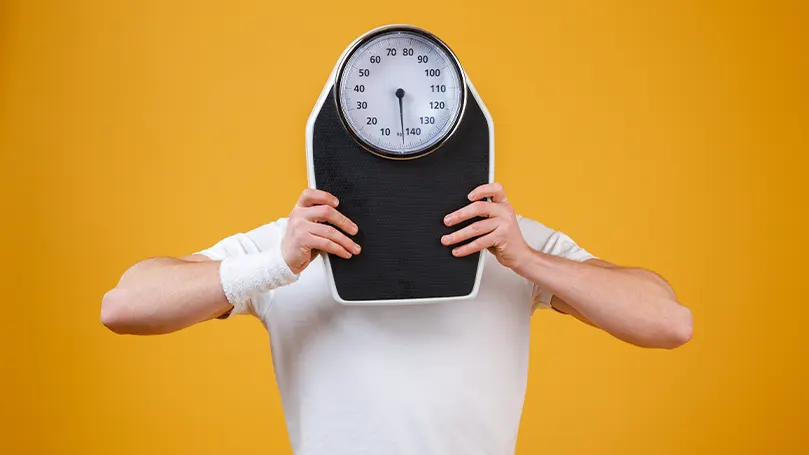
To answer the titular question, yes, you can weigh more at night. However, you don't have to! This is because weight fluctuation can make the scale tip one way or another depending on a few key factors. Sometimes it can feel like you're a lot heavier by the time you go to bed. Other times you'll lose weight between breakfast and dinner.
And as long as that fluctuation doesn't exceed 2 kgs (4-5 pounds), it's all completely normal. However, if you start dropping several pounds each day or suddenly gain weight over 3-4 kgs in a day, it's best to see a professional.
Why do you weigh more at night?
As you'll soon see, there are many factors that affect weight fluctuation. From your genetics to what you eat, quite a few things can make it so that you weigh more during the evening than in the morning. We'll also be featuring comments from a professional on the topic, to make sure everything's accounted for.
Fluid retention
Fluid retention is the most likely culprit when it comes to the added weight in the evening. After all, humans are about 60% water, so it only makes sense that water weight plays a big role. And there are two contributing factors when it comes to water retention.
First off, you naturally lose water during the night. This is done through perspiration, respiration, and even the occasional midnight bathroom break. And during this time, you're also typically not drinking any fluids or eating. So, it only makes sense that in the morning you'll be a lot lighter than at night when you're still holding on to the excess fluid.
The second part of this equation has to do with what you eat. We asked Mary Sabat MS, RDN, LD, nutritionist for their comment and they pointed out: “People who consume a high-sodium diet may retain more water and experience more weight fluctuations“.
This is because sodium can make it so our body holds on to more water and thus make the number on the scale higher than we expected. On top of that, food with a lot of salt also makes you thirsty – commonly resulting in you drinking more water. And when you combine a heightened thirst with a need to retain excess water, you can get a few pounds extra on your scale. Not to mention that it also raises your blood pressure!
Your diet
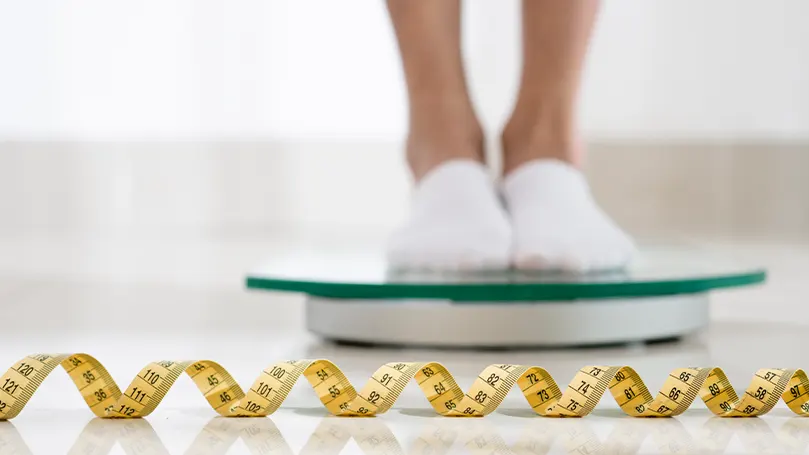
Although water weight account for a big chunk of weight fluctuation, it isn't the only thing in play. For example, another obvious factor is what you eat. First off, like we've said in the previous section, in terms of sodium and how that affects water retention.
But also in more obvious terms – like the food that's in your stomach. For example, if you weigh yourself after a bowel movement in the morning, it's bound to seem like weight loss. However, if you do the same thing in the evening after dinner, you'll see the weight fluctuate.
But there are also less obvious ways food affects your current weight. For example, carbohydrate foods can make you bloated or even constipated in some cases. This will in turn likely make it seem like you weigh more. On the other hand, certain foods can trigger diarrhoea and make it seem like you're losing weight.
Lastly, as Dr Gabriela Rodríguez Ruiz points out: “Another cause of weight fluctuation is changes in your diet. If you drastically increase or decrease your food intake, you will see a difference on the scale. This type of fluctuation can be caused by skipping meals, eating too much unhealthy food, or not getting enough nutrients from healthy foods. When we make major changes to our diet, it can take a few days for our bodies to adjust and stabilise”.
Physical activity
Whether you're physically active or not can affect your weight both on a micro and macro scale. On the one hand, there are few weight loss progress plans that don't include some sort of physical exercise! After all, it helps you burn calories and stay healthy overall. However, it's significant for a few more reasons.
Once again turning to Mary, they point out how: “People who engage in regular physical activity may experience less weight fluctuation due to increased muscle mass and glycogen storage.” This is because those with a higher muscle mass tend to have higher metabolic rates and thus can burn off calories more quickly. Plus, they're less likely to hold on to a lot of water if they're breaking a serious sweat every day.
Hormonal changes
Although hormonal changes are rarely going to influence weight changes in men, women should keep them in mind when trying to measure an accurate weight. This is because quite a few of the factors we've already mentioned come into play during a woman's menstrual cycle.
First off, due to heightened estrogen and progesterone levels, the body tends to hold on to more water, thus adding a pound or two. On top of that, if you frequently experience cravings during your cycle, the change in diet can also affect the number on the scale. And on top of all that, you might experience constipation and bloating.
Of course, most of these issues do tend to simmer down after your cycle is over. So, it's definitely not impossible to get an accurate weight reading. Just make sure not to obsess over your weight during this time as it's completely natural.
How much weight gain/loss is normal?
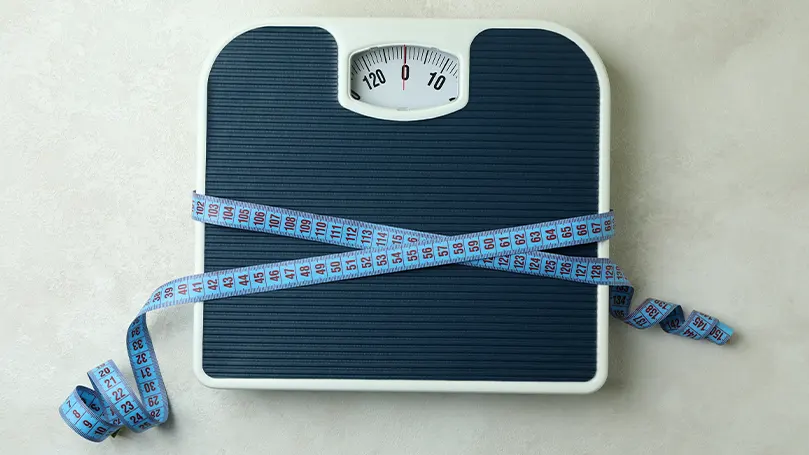
Now that you know how many things can affect your weight, it's only natural to wonder just how far can these numbers swing. After all, if you're having weigh-ins all the time, you're bound to wonder how much more do you weigh at night. And as a general rule of thumb, your weight can fluctuate by about 1-2 kg during a single day. Although it's important to note that this is just an average.
In other words, if you're on the smaller side, a 2 kg uptick could be cause for concern. That's especially if you don't think it was due to any of the factors we've described so far. On the other hand, if you're on the heavier side, then even a 3 kg change could just be due to water weight. Although it's always best to double-check with your GP.
When should you weigh yourself?
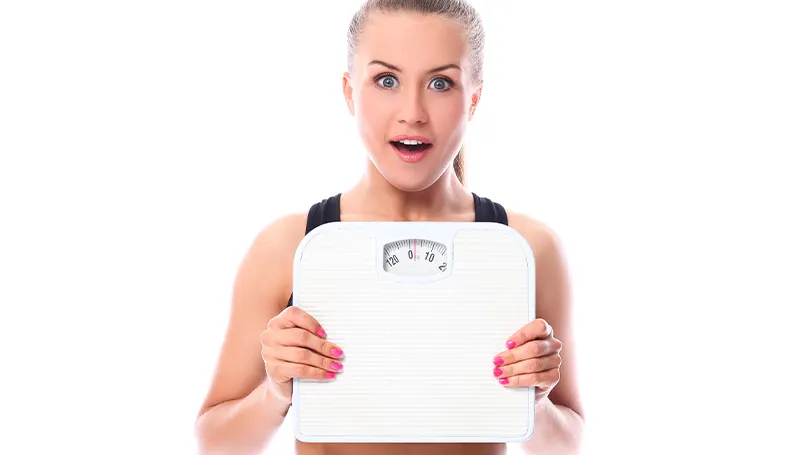
Lastly, how can you get the most accurate weight reading possible? After all, many of us tend to obsess over the numbers on the scale. Having it bounce around each day might just drive you crazy. The easiest way to get an accurate reading is to simply weigh yourself at the same time each day.
So, if you have a weigh-in one day before breakfast, make sure that the next one isn't after dinner. And if you only want to see yourself at your lightest, first thing in the morning after a bowel movement is likely your best bet. That being said, it's also important to point out that you shouldn't live your life according to the scale.
As Mary rightfully points out: “It's important to keep in mind that weight is just one aspect of overall health and that factors such as body composition, physical fitness, and overall well-being are also important considerations. Trying on a pair of pants that are tight and using them as a gauge for weight loss can be less frustrating for some people who are prone to larger fluctuations.”
So, while getting weekly weigh-ins can be helpful for your weight loss journey, make sure not to overdo it. After all, getting frustrated and eventually quitting isn't going to do you any good in the long run.
Conclusion
In conclusion – do you weigh more at night or morning? Typically, you'll be slightly heavier during the evening. However, many factors are constantly at play when it comes to your body weight and the number can swing in any direction. So, we believe it's a lot more important to focus on your overall health and happiness. Just keep a general record of your weight in case you want to track progress.

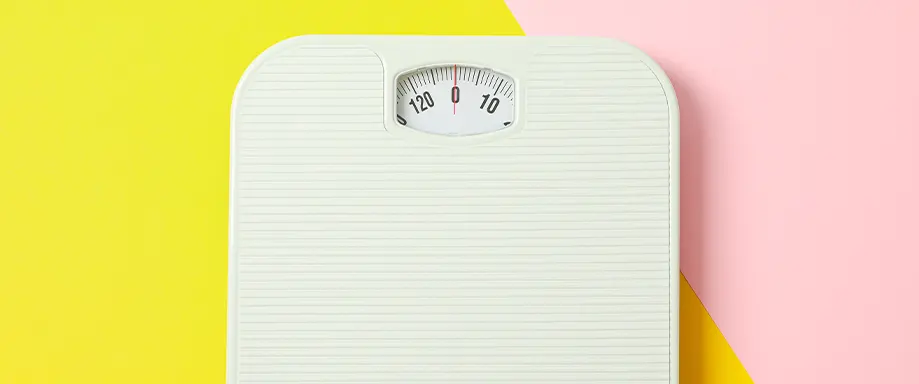











There are no comments yet
"*" indicates required fields